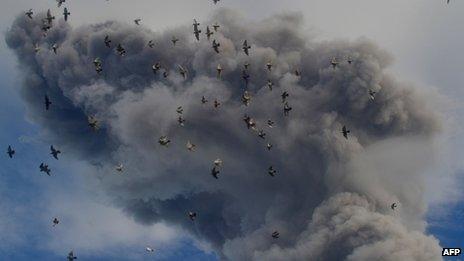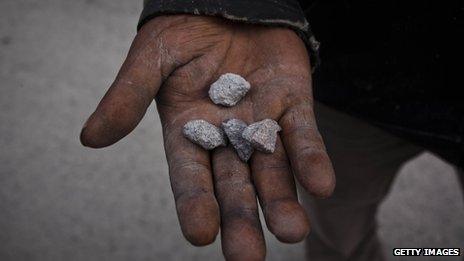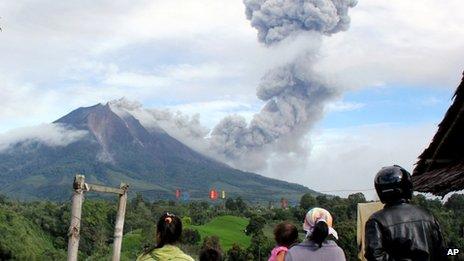Indonesia raises Sumatra volcano alert to highest status
- Published
People evacuate the area around the volcano
Indonesian officials have raised the alert for the Mount Sinabung volcano in North Sumatra to the highest level.
The status was raised from "stand-by" to "caution" - the highest alert for volcanic activity - on Sunday.
People have also been warned to stay at least 5km (3 miles) from the crater.
Mt Sinabung has been showing signs of life since September, after being dormant for three years. Over the weekend, it shot ash and rocks far into the air, prompting the alert move.
More than 15,000 villagers in the area had already been moved to temporary shelters, disaster management officials said in a statement.
Airlines have also been advised not to fly near the area.

Mt Sinabung in North Sumatra province erupted a number of times on Sunday

Ash and rocks have been raining over the area near the volcano's crater

The series of eruptions has forced villagers to flee their homes

Thousands of villagers have now been moved to temporary shelters
The disaster management agency said they had changed the alert level because they anticipated there would "more eruptions and because the intensity of eruptions has been increasing".
A local official told Agence-France Presse agency that "loud thunderous sound and vibrations" accompanied the eruptions.
No casualties have been reported so far.
When the volcano last erupted in 2010, at least two people were killed and 30,000 others were displaced.
Before 2010, Mount Sinabung had not erupted in 400 years. It is one of around 130 active volcanoes in the country.
- Published20 November 2013
- Published18 November 2013
- Published17 September 2013
- Published3 September 2010
- Published30 August 2010